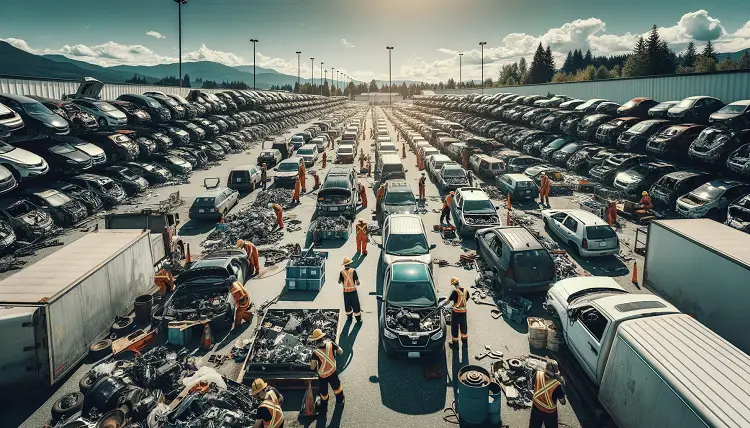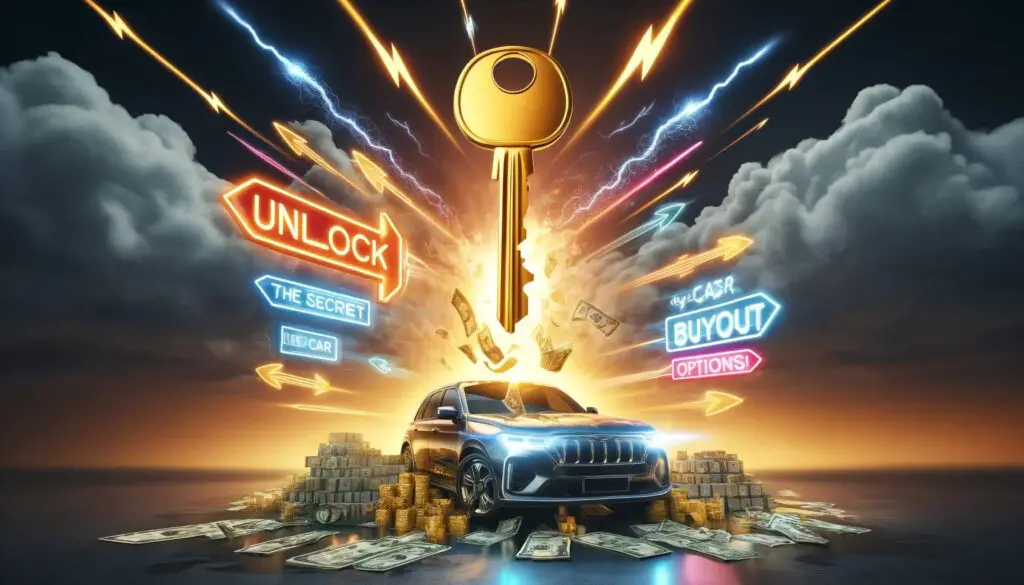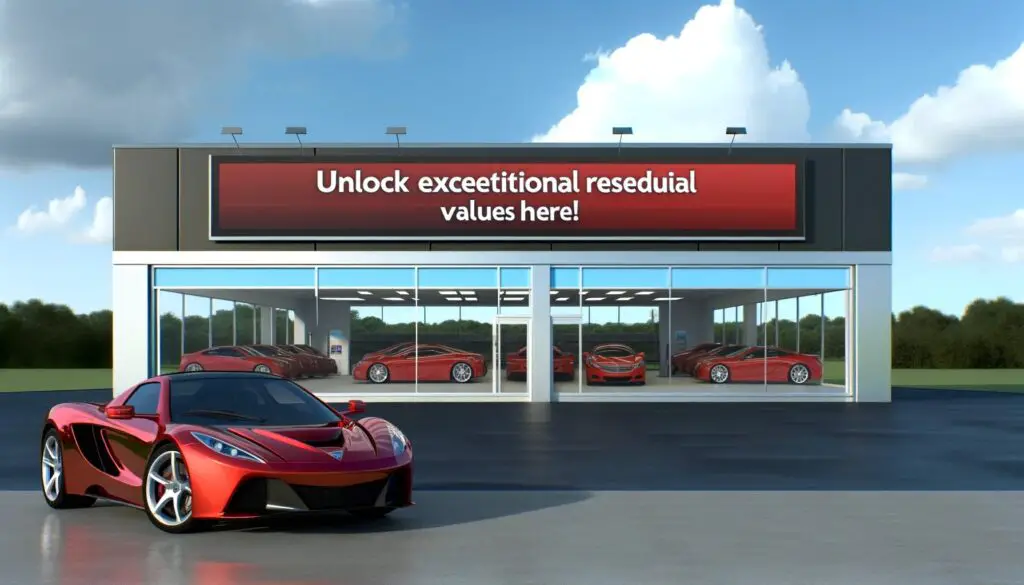In the picturesque province of British Columbia, Canada, the concept of “Cash for Junk Cars” has gained significant traction over the years. This comprehensive guide aims to shed light on this thriving industry, emphasizing the importance of responsible disposal, program availability, vehicle eligibility, and tips for securing the best deal. Whether you’re a resident looking to dispose of an old vehicle or a curious enthusiast, this guide will provide you with all the essential information you need.
I. Introduction
A. The Concept of Cash for Junk Cars
Cash for junk cars is a simple yet effective solution for individuals looking to get rid of their unwanted, old, or non-functional vehicles. Instead of letting these vehicles deteriorate and pollute the environment, they can be exchanged for cash, benefitting both the vehicle owner and the ecosystem.
B. Importance of Responsible Disposal in British Columbia
British Columbia is renowned for its commitment to environmental conservation. Responsible disposal of junk cars aligns with the province’s eco-conscious values, ensuring that hazardous materials are handled and recycled safely, reducing the impact on the environment.
C. Purpose of the Guide
This guide aims to inform readers about the cash for junk cars industry in British Columbia, helping them make informed decisions while contributing to a cleaner, greener environment.
II. Program Availability in British Columbia
A. Absence of Government-Run Programs
In British Columbia, unlike some other provinces in Canada, there is a notable absence of government-run cash for junk car programs. Instead, the industry is predominantly operated by private companies and salvage yards. This unique characteristic of the province’s approach to vehicle disposal has both advantages and implications for vehicle owners and the environment.
B. Private Companies and Salvage Yards
Private companies and salvage yards form the backbone of the cash for junk cars sector in British Columbia. These businesses specialize in purchasing old, unwanted, or non-functional vehicles from individuals, providing a valuable service to vehicle owners looking to dispose of their cars, trucks, SUVs, or other vehicles. Here’s a closer look at their roles:
1. Purchasing Vehicles:
Private companies and salvage yards offer vehicle owners the opportunity to sell their old or damaged vehicles. This process is relatively straightforward, involving an assessment of the vehicle’s condition and the negotiation of a cash offer.
2. Responsible Disposal:
One of the critical responsibilities of these entities is ensuring that vehicles are disposed of in an environmentally responsible manner. This includes recycling salvageable materials, proper handling of hazardous substances, and adhering to legal and ethical disposal practices.
3. Salvaging and Parts Recycling:
Salvage yards play a crucial role in recycling and repurposing vehicle parts. They salvage usable components, such as engines, transmissions, and body parts, which can be sold as replacement parts for other vehicles. This practice promotes resource efficiency and reduces the demand for new parts production.
C. Benefits of Choosing Private Companies
Vehicle owners in British Columbia often choose private companies for cash for junk cars transactions due to several compelling benefits:
1. Quick Transactions:
Private companies are known for their efficiency. They offer swift transactions, allowing vehicle owners to complete the sale and receive payment promptly.
2. Competitive Pricing:
The competitive nature of the private sector drives companies to offer competitive pricing to vehicle owners. This ensures that sellers receive a fair market value for their vehicles.
3. Streamlined Process:
Private companies have streamlined processes in place to facilitate transactions smoothly. From initial inquiries to vehicle pick-up, they aim to make the experience hassle-free for their customers.
4. Varied Vehicle Acceptance:
Private companies often accept a wide range of vehicle types and conditions. Whether your vehicle is a non-functional junk car or simply old and unwanted, private companies are generally willing to consider it for purchase.
D. Impact of Government Regulations on the Industry
While the government of British Columbia does not directly operate cash for junk car programs, it plays a significant role in regulating and overseeing the industry. These government regulations are essential for maintaining environmentally responsible practices within the sector:
1. Environmental Responsibility:
The British Columbia government enforces strict environmental regulations to ensure that the disposal of vehicles, including the handling of potentially hazardous materials, is conducted in an environmentally responsible manner. This includes the proper containment and disposal of fluids like oil and antifreeze.
2. Ethical Practices:
Government regulations also aim to uphold ethical standards within the industry. Companies are required to follow ethical practices when dealing with customers, ensuring transparency in transactions and adherence to contractual agreements.
3. Recycling and Sustainability:
British Columbia’s commitment to sustainability extends to the cash for junk cars industry. Regulations encourage recycling and the responsible disposal of materials, promoting resource conservation and reducing the environmental impact of junk vehicles.
III. Vehicle Eligibility
A. Types of Vehicles Accepted
Cash for junk car programs in British Columbia are known for their inclusivity when it comes to the types of vehicles they accept. Whether you have an old sedan, a non-functional truck, a retired SUV, a van that’s seen better days, or even a motorcycle gathering dust, chances are, these programs will accept them. The wide range of accepted vehicle types ensures that nearly all vehicle owners can benefit from these programs, regardless of the type of vehicle they want to dispose of.
B. Condition Requirements
One of the appealing aspects of cash for junk car programs in British Columbia is their flexibility regarding the condition of vehicles. While most programs are willing to consider vehicles in various states of disrepair, it’s essential to note that specific criteria may vary between individual companies. Here are some common conditions that cash for junk car programs may accept:
1. Non-Functional Vehicles:
Many programs readily accept vehicles that are no longer operational. Whether your vehicle has engine problems, extensive body damage, or mechanical failures, it can still have value in the eyes of these programs.
2. Old or Unwanted Vehicles:
Cash for junk car programs also welcomes older vehicles or those that are simply unwanted. If you have a vehicle that you no longer wish to keep, even if it’s still in working condition, these programs offer a convenient way to part with it.
3. Vehicles in Any Condition:
Some cash for junk car companies are open to vehicles in virtually any condition. This means you don’t need to worry about extensive repairs or restoration efforts before considering selling your vehicle.
4. Minimal Documentation:
In many cases, cash for junk car programs in British Columbia require minimal documentation, especially for non-functional vehicles. This simplifies the process for vehicle owners, making it easier to sell their cars, even if they no longer have the original paperwork.
It’s worth noting that while these programs are generally accommodating when it comes to vehicle condition, individual companies may have their specific guidelines. Therefore, it’s advisable to contact the company directly or check their website to understand their precise criteria and documentation requirements.
C. Age and Title Status Restrictions
In British Columbia, there are typically no specific age restrictions imposed on vehicles eligible for cash for junk car programs. This means that both older and more recent models can be considered for sale.
However, a valid title or proof of ownership is typically required to complete the transaction. This documentation is essential for establishing that you are the rightful owner of the vehicle and have the legal authority to sell it. While the title status itself does not usually disqualify a vehicle, it’s crucial to ensure that you have the necessary paperwork in order before engaging with a cash for junk car program.
In conclusion, cash for junk car programs in British Columbia offer a wide-ranging and inclusive approach to vehicle eligibility. They accept a diverse array of vehicle types, accommodate various conditions, and generally do not impose strict age restrictions. Nevertheless, it’s essential to be aware of individual company requirements and to ensure that you possess the necessary title or ownership documentation when considering selling your vehicle through these programs.
IV. Responsible Disposal Practices
A. Importance of Responsible Dismantling and Recycling
Responsible disposal is not solely about receiving cash for your old vehicle; it encompasses a broader commitment to safeguarding the environment. Here’s why responsible dismantling and recycling are of paramount importance:
- Environmental Preservation:
By dismantling and recycling vehicles in an environmentally friendly manner, we mitigate the potential harm caused by abandoned or improperly disposed of vehicles. This preservation of the natural environment is vital in British Columbia, a province known for its stunning landscapes and commitment to sustainability.
- Prevention of Harmful Substances:
Vehicles, especially older ones, may contain hazardous materials such as oil, antifreeze, and battery acid. When these substances are not handled properly during disposal, they can seep into the soil and waterways, posing a significant threat to ecosystems and public health. Responsible dismantling prevents the release of these harmful substances into the ecosystem.
- Resource Conservation:
Many components of vehicles, including metals, plastics, and rubber, can be recycled and repurposed. Responsible recycling not only minimizes waste but also conserves valuable resources, reducing the need for new raw materials. This aligns with British Columbia’s commitment to sustainability and reducing its carbon footprint.
B. End-of-Life Vehicle (ELV) Program Accreditation
When selecting a cash for junk car company in British Columbia, it’s advisable to look for those accredited under the End-of-Life Vehicle (ELV) program. ELV accreditation signifies a company’s dedication to eco-friendly disposal practices and adherence to stringent environmental standards. Here’s why ELV accreditation is significant:
- Eco-Friendly Practices:
ELV-accredited companies follow best practices for environmentally responsible vehicle disposal. This includes proper fluid drainage, recycling of salvageable materials, and safe handling of hazardous substances.
- Compliance with Regulations:
ELV accreditation ensures that the company complies with government regulations related to vehicle disposal. This guarantees that the disposal process is carried out in a manner that meets or exceeds legal environmental requirements.
- Consumer Confidence:
Choosing an ELV-accredited company instills confidence in consumers that their vehicle will be disposed of in a manner that prioritizes environmental protection and sustainability.
C. Sustainable Procedures and Their Significance
Sustainability is a core principle of responsible disposal practices in British Columbia’s cash for junk car industry. Sustainable procedures involve recycling materials like metal, plastic, and rubber, with the aim of reducing the need for new resources. Here’s why sustainability is significant:
- Reduced Carbon Footprint:
Recycling materials from junk cars reduces the demand for virgin resources, which, in turn, reduces energy consumption and greenhouse gas emissions associated with resource extraction and manufacturing. This contributes to a smaller carbon footprint.
- Resource Conservation:
Recycling materials not only reduces environmental impact but also conserves valuable resources for future generations. It minimizes the depletion of natural resources and helps build a more sustainable future.
- Economic Benefits:
Sustainable disposal practices can stimulate local economies by creating jobs in recycling and repurposing industries. This economic aspect aligns with the province’s commitment to both environmental and economic sustainability.
In conclusion, responsible disposal practices are integral to cash for junk car programs in British Columbia. They encompass responsible dismantling, recycling, and the prevention of harmful substances in the environment. End-of-Life Vehicle (ELV) program accreditation signifies a company’s commitment to eco-friendly disposal practices, and sustainable procedures contribute to reducing the carbon footprint and conserving resources. By embracing these principles, individuals can make a positive impact on the environment while participating in the cash for junk car industry.
V. Finding Reputable Cash for Junk Car Companies
A. Researching Online Reviews and Ratings
One of the first steps in identifying a reputable cash for junk car company is to conduct thorough research by examining online reviews and ratings. Here’s why this step is essential:
1. Reputation Assessment:
Online reviews and ratings provide valuable insights into a company’s reputation. Reading feedback from previous customers allows you to gauge their level of satisfaction with the company’s services.
2. Customer Experiences:
Reviews often contain detailed accounts of customer experiences, including the ease of the transaction, the accuracy of offered quotes, and the professionalism of the company’s staff. This information can help you make an informed decision.
3. Transparency:
Companies that are transparent and trustworthy tend to have positive reviews and ratings. Conversely, those with a history of issues and complaints are usually red flags that indicate potential problems.
4. Reliability:
Consistently positive reviews and high ratings indicate that the company has a track record of reliability and customer satisfaction, making it a strong candidate for your cash for junk car needs.
B. Looking for Established Companies
Choosing an established cash for junk car company offers several advantages:
1. Proven Track Record:
Established companies often have a history of successful transactions, which can give you confidence in their ability to provide a reliable and efficient service.
2. Knowledge and Expertise:
Experience in the industry translates into knowledge and expertise. Established companies are more likely to have a deep understanding of the cash for junk car process, ensuring a smooth and hassle-free experience for customers.
3. Financial Stability:
Long-standing companies tend to have financial stability, which can be crucial when it comes to timely payments and reliable services.
C. Verification of ELV Program Accreditation
Ensuring that the cash for junk car company you choose is accredited under the End-of-Life Vehicle (ELV) program is essential for several reasons:
1. Eco-Friendly Practices:
ELV accreditation signifies the company’s commitment to environmentally responsible disposal practices. Choosing an accredited company ensures that your vehicle will be disposed of in an eco-friendly manner.
2. Compliance with Regulations:
ELV accreditation also ensures that the company complies with government regulations related to vehicle disposal. This guarantees that the disposal process meets or exceeds legal environmental requirements.
3. Consumer Confidence:
Knowing that a company is accredited under the ELV program instills confidence in consumers, assuring them that their vehicle’s disposal will prioritize environmental protection and sustainability.
D. Membership in Reputable Industry Associations
Another indicator of a reputable cash for junk car company is membership in reputable industry associations. Here’s why this affiliation is significant:
1. Ethical and Environmental Standards:
Companies that are members of reputable industry associations are more likely to adhere to ethical and environmental standards. These associations often have codes of conduct that member companies must follow.
2. Accountability:
Membership in industry associations can hold companies accountable for their practices. Associations may require members to meet specific criteria, ensuring a level of quality and responsibility in their services.
3. Commitment to Best Practices:
Companies that seek membership in industry associations demonstrate a commitment to adhering to best practices and maintaining high standards of service quality.
In conclusion, when seeking reputable cash for junk car companies in British Columbia, conducting research by examining online reviews and ratings, considering established companies, verifying ELV program accreditation, and looking for membership in reputable industry associations are essential steps to ensure that you choose a company that offers ethical, reliable, and environmentally responsible services. These steps help you make an informed decision and ensure a smooth and satisfactory cash for junk car transaction.
VI. Getting the Best Deal
A. Obtaining Quotes from Multiple Companies
Securing the best deal starts with obtaining quotes from multiple cash for junk car companies. Here’s why this step is crucial:
1. Price Comparison:
By reaching out to several companies, you can compare the offers they provide. This allows you to assess the market value of your vehicle and identify the most competitive offer.
2. Negotiating Power:
Having multiple quotes in hand gives you negotiating power. You can use competing offers to potentially secure a better deal from your preferred company.
3. Ensuring Fair Value:
Obtaining multiple quotes ensures that you receive a fair and accurate valuation of your vehicle’s worth. This transparency helps prevent undervaluation.
B. The Significance of Price Comparison
While price is a significant factor, it’s important to consider other aspects beyond just the monetary value of the offer:
1. Environmental Practices:
Take into account the company’s commitment to eco-friendly practices. Companies that prioritize responsible disposal and recycling contribute to a cleaner environment, aligning with British Columbia’s values.
2. Customer Service Reputation:
Research the company’s reputation for customer service. Excellent customer service can make the transaction smoother and more satisfactory, ensuring a positive experience.
3. Transparency and Honesty:
Consider how transparent and honest the company is in its dealings. A trustworthy company will provide accurate information, answer your questions, and address any concerns you may have.
C. Honesty About the Vehicle’s Condition
Honesty about your vehicle’s condition is paramount when seeking quotes. Here’s why upfront transparency is crucial:
1. Accurate Valuation:
Providing accurate information about your vehicle’s condition ensures that you receive quotes that reflect its actual worth. Misrepresenting your vehicle’s condition can lead to unrealistic offers.
2. Smooth Transactions:
Honesty fosters trust between you and the cash for junk car company. This trust can lead to a smoother and more efficient transaction process.
3. Avoiding Disputes:
Providing truthful information helps prevent disputes and complications during the sale. It ensures that both parties have a clear understanding of the vehicle’s condition.
D. Factors Beyond Price
Consider factors beyond the offer price when making your decision:
1. Environmental Responsibility:
Assess the company’s commitment to eco-friendly practices. Choosing a company that prioritizes responsible disposal contributes to a cleaner environment and aligns with British Columbia’s values.
2. Customer Service Reputation:
Research the company’s reputation for customer service. A company with a positive customer service record is more likely to provide a hassle-free and satisfactory transaction experience.
3. Ethical Practices:
Evaluate the company’s overall ethics and business practices. Companies that adhere to ethical standards are more likely to provide a transparent and fair transaction.
In conclusion, getting the best deal when considering cash for junk car companies in British Columbia involves obtaining quotes from multiple companies, comparing offers, and assessing factors beyond price. Environmental practices, customer service reputation, and honesty about your vehicle’s condition are critical elements to consider. By taking a holistic approach to evaluating offers, you can ensure a smooth and mutually beneficial transaction while contributing to responsible vehicle disposal practices in the province.
VII. Additional Tips for a Smooth Transaction
A. Removing Personal Belongings from the Vehicle
Before handing over your vehicle, ensure that you have removed all personal belongings.
B. Proper Ownership Transfer and Necessary Paperwork
Follow the proper procedure for ownership transfer and ensure you have all the necessary paperwork in order.
C. Understanding the Company’s Towing Policy
Clarify the company’s towing policy and whether it includes complimentary towing services.
D. Awareness of Associated Fees
Be aware of any potential fees associated with the transaction, such as towing or paperwork processing fees.
VIII. Conclusion
A. Recap of the Importance of Responsible, Ethical Choices
In conclusion, cash for junk cars in British Columbia provides a win-win solution for vehicle owners and the environment. By choosing responsible disposal options, you contribute to a cleaner, greener future.
B. Contribution to a Cleaner Environment Through Proper Disposal
Proper disposal practices significantly reduce the environmental impact of junk cars, promoting sustainability and protecting the ecosystem.
C. Encouragement for Informed Decision-Making
We encourage individuals in British Columbia to make informed decisions when considering cash for junk car programs. Your choices matter in preserving our beautiful province.
IX. Frequently Asked Questions (FAQs)
A. What Is Cash for Junk Cars?
Cash for junk cars is a program that allows vehicle owners to exchange their unwanted or non-functional vehicles for cash.
B. Can I Sell Any Type of Vehicle?
Most programs accept a wide range of vehicles, including cars, trucks, SUVs, vans, and motorcycles.
C. Do I Need to Have a Running Vehicle?
No, many programs accept vehicles in any condition, including non-functioning ones.
D. Are There Age Restrictions for Vehicles?
There are no specific age restrictions for vehicles eligible for cash for junk car programs in British Columbia.
E. How Can I Verify a Company’s ELV Program Accreditation?
You can verify a company’s ELV program accreditation by checking their official website or contacting them directly.
F. What Are Sustainable Disposal Procedures?
Sustainable disposal procedures involve recycling materials from junk cars to reduce the environmental impact and conserve resources.
G. How Can I Check Online Reviews and Ratings?
You can check online reviews and ratings on platforms like Google Reviews, Yelp, and the company’s website.
H. Why Is Honesty About the Vehicle’s Condition Important?
Honesty about your vehicle’s condition ensures that you receive accurate quotes and helps the company make appropriate disposal arrangements.
I. What Factors Should I Consider Besides the Price?
Consider factors such as the company’s environmental practices and customer service reputation when choosing a cash for junk car company.
J. What Should I Do Before the Company Picks Up My Car?
Before the company picks up your car, remove all personal belongings and ensure you have the necessary paperwork in order.
K. How Do I Transfer Ownership and Obtain Necessary Paperwork?
Follow the proper procedure for ownership transfer, which typically involves signing the title over to the purchasing company.
L. Are There Any Towing Fees I Should Be Aware Of?
Be aware of potential towing fees, and clarify the towing policy with the cash for junk car company you choose.
In conclusion, the cash for junk cars industry in British Columbia offers an excellent opportunity for vehicle owners to responsibly dispose of their old or non-functional vehicles while contributing to a cleaner environment. By following the guidelines and tips outlined in this comprehensive guide, you can make informed decisions and secure the best deal for your junk car.





